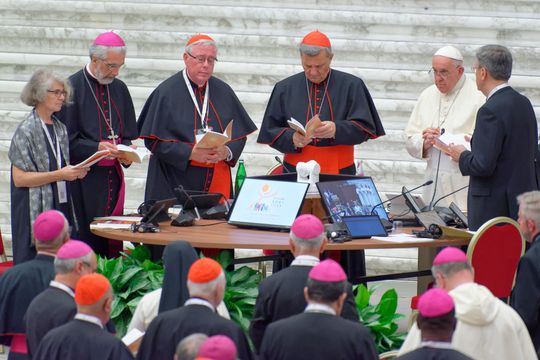
Published October 5, 2023
This week a select group of Catholic bishops, clergy and lay people flocked to Rome for a three-week “synod on synodality.” If the topic sounds obscure and mind-numbing, it is both. The gathering is meant to be a conversation with the pope about pressing concerns within the church. The problem is that synodality is hardly the most urgent issue facing the Catholic world; it’s an ambiguous theological concept that, in the end, will mean whatever the pope wants it to mean. And that’s likely the point. Pope Francis has very different priorities from his predecessors and intends to pursue them, solidifying his place as the most authoritarian Roman pontiff in decades.
Christian history is full of good men who fared badly as popes and bad men who somehow stumbled into doing good. Most are forgettable, and the strengths and weaknesses of a pope don’t always shape the final verdict on his ministry. In the case of Pope Francis, his virtues are obvious. He has a heartfelt commitment to mercy and a deep love for the poor, the excluded and the migrant. He has a thoroughly biblical sense of stewardship for creation. In secular terms, he has an admirable concern for the environment, as evidenced by “Laudate Deum” (“Praise God”), his Oct. 4 apostolic exhortation on climate change.
Continue reading on the Wall Street Journal.
Francis X. Maier is a Senior Fellow in the Catholic Studies Program at the Ethics and Public Policy Center. Mr. Maier’s work focuses on the intersection of Christian faith, culture, and public life, with special attention to lay formation and action.











